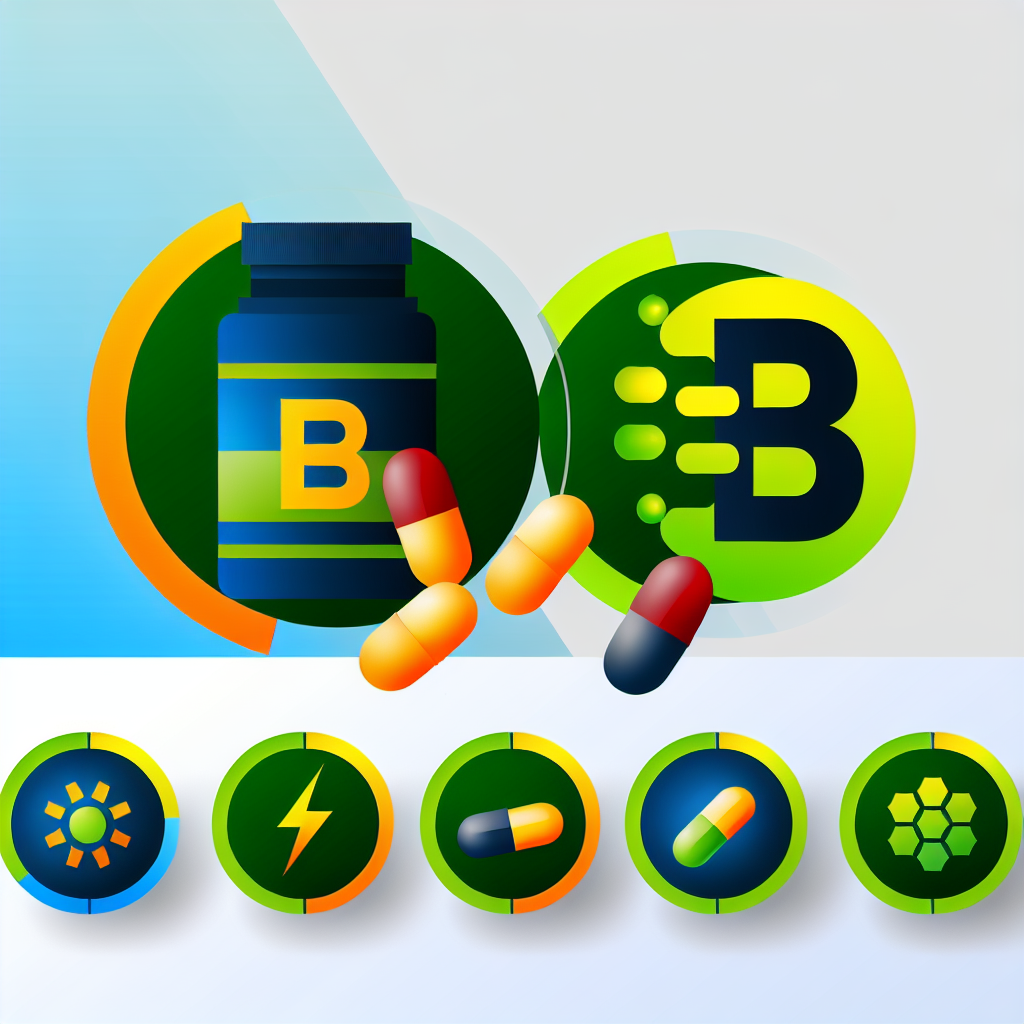Have you ever felt tired for no reason, dealt with brittle nails, or struggled to focus? These seemingly unrelated issues could point to a Vitamin B deficiency. Vitamin B is a group of essential nutrients your body relies on to convert food into energy, support brain function, and maintain overall health. Yet, many people don’t realize just how important this vitamin complex is—or how easy it can be to fall short of meeting your body’s needs.
Whether you're looking for a natural energy boost, stronger hair and nails, or improved mental focus, Vitamin B is the key. In this guide, we’ll explore everything you need to know about Vitamin B, from its benefits and types to dietary sources and supplementation tips.
What Is Vitamin B and Why Does It Matter?
Vitamin B isn’t a single nutrient—it’s a family of eight water-soluble vitamins collectively known as the Vitamin B complex. Each type of Vitamin B plays a unique role in your body, helping you maintain energy, repair cells, and even regulate your mood. Because it’s water-soluble, your body doesn’t store it for long. Instead, you need a steady intake from food or supplements to keep your levels balanced.
A lack of Vitamin B can lead to fatigue, brain fog, or skin and hair issues. On the flip side, getting enough ensures your body performs at its best day after day.
The 8 Types of Vitamin B: Your Body’s All-Star Team
Let’s break down the Vitamin B complex into its eight members, each vital for different aspects of your health:
- Vitamin B1 (Thiamine): Converts carbohydrates into energy and supports nerve function. Found in foods like pork, whole grains, and beans.
- Vitamin B2 (Riboflavin): Aids in cell repair and keeps your skin and eyes healthy. Look for it in milk, eggs, and almonds.
- Vitamin B3 (Niacin): Improves heart health and cholesterol levels. Found in poultry, fish, and fortified cereals.
- Vitamin B5 (Pantothenic Acid): Helps your body regulate stress hormones and produce energy. Common sources include mushrooms, avocados, and sweet potatoes.
- Vitamin B6 (Pyridoxine): Supports brain health, mood regulation, and hemoglobin production. Found in chicken, bananas, and spinach.
- Vitamin B7 (Biotin): Known for improving hair, skin, and nail health. You’ll find it in eggs, nuts, and seeds.
- Vitamin B9 (Folate): Promotes cell growth and repair, especially crucial during pregnancy. Leafy greens, legumes, and citrus fruits are rich sources.
- Vitamin B12 (Cobalamin): Essential for cell production, nerve health, and energy metabolism. Found in animal products like meat, fish, and dairy.
Why You Need Vitamin B for Better Health
The benefits of Vitamin B go far beyond basic nutrition. It’s a nutrient that can transform how you feel each day:
- Boosts Energy: The Vitamin B complex helps your body turn food into fuel, providing natural, lasting energy.
- Sharpens Mental Focus: Vitamins like B6 and B12 support cognitive health and reduce risks of memory loss.
- Enhances Skin and Hair: Biotin strengthens hair while giving your skin a healthier texture.
- Supports Heart Health: Niacin and Folate contribute to cholesterol management and cardiovascular wellness.
Are You Deficient in Vitamin B? Warning Signs to Watch For
A deficiency in Vitamin B can lead to subtle symptoms at first but may become more serious over time. Look out for:
- Fatigue or persistent low energy
- Tingling or numbness in hands and feet
- Hair thinning or brittle nails
- Irritability or struggles with concentration
- Cracked, dry skin
At-risk groups include vegetarians, vegans, older adults, and individuals with certain medical conditions like Crohn’s disease. Alcohol consumption can also interfere with Vitamin B absorption, further increasing risk.
The Best Sources of Vitamin B
The easiest way to get your daily dose of Vitamin B is through a balanced diet. Here are the top foods rich in these vital nutrients:
- Animal-Based Sources: Beef liver, fish like salmon and tuna, eggs, and dairy products.
- Plant-Based Sources: Lentils, chickpeas, spinach, kale, almonds, and sunflower seeds.
If you follow a plant-based diet, consider fortified foods like cereals, soy products, and nutritional yeast to meet your Vitamin B12 needs.
Do You Need a Vitamin B Supplement?
While food should be your first choice, supplements can help fill the gap under certain circumstances. You might benefit from a Vitamin B-complex supplement if:
- You’re vegan or vegetarian and struggle to get enough B12 from food.
- You’re pregnant and require extra Folate to support your baby’s development.
- Your doctor has identified a deficiency due to age, health conditions, or lifestyle factors.
Always consult a healthcare professional to choose a high-quality supplement and avoid over-supplementation.
Tips for Maximizing Your Vitamin B Intake
To maintain optimal Vitamin B levels, try these simple strategies:
- Eat Diverse Meals: Include foods like meat, fish, legumes, and greens to cover the full spectrum of B vitamins.
- Choose Fortified Foods: Add cereals and nutritional yeast to boost your Vitamin B12 intake, especially if you’re plant-based.
- Limit Alcohol: Alcohol can interfere with your body’s ability to absorb Vitamin B, so moderate consumption is best.
- Seek Professional Guidance: If you suspect a deficiency, a doctor or dietitian can help confirm your levels and recommend the right steps.
Wrap-Up: Let Vitamin B Be Your Wellness Ally
Vitamin B might not grab headlines like trendy superfoods, but it’s one of the most crucial nutrients for your energy, beauty, and overall health. By eating Vitamin B-rich foods, considering supplements when necessary, and taking proactive steps to meet your body’s needs, you’ll feel more energized, focused, and resilient every day.
So, start today. Whether it's adding more leafy greens to your plate or speaking with a doctor about supplements, every small change counts. Your body—and your future self—will thank you.
